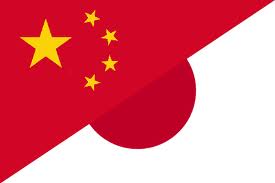China rejected as "slanderous" a renewed call by Japan’s premier for Beijing to rescind its controversial air defense zone, the latest salvo in a territorial dispute that has increased friction in the region.
China rejected as "slanderous" a renewed call by Japan's premier for Beijing to rescind its controversial air defense zone, the latest salvo in a territorial dispute that has increased friction in the region.
Beijing's retort came hours after Prime Minister Shinzo Abe said at a Japan-ASEAN summit in Tokyo on Saturday that he was "deeply concerned" by China's establishment of the air zone and that he believed "many" leaders of Southeast Asian countries attending the meeting shared his view.
"We express strong dissatisfaction with the Japanese leader's use of an international meeting to make slanderous remarks about China," Chinese foreign ministry spokesman Hong Lei said in a statement posted online late Saturday.
He added that Japan's "attempt to promote a double standard and mislead international public opinion is doomed to fail."
"The one that has unilaterally changed the status quo over the Diaoyu islands is none other than Japan itself," Hong said.
"In this regard, China has taken lawful and necessary measures to safeguard its sovereign territory and is fully justified and blameless."
China last month declared an air defense identification zone over an area of the East China Sea which includes the disputed Tokyo-controlled islands, which Japan calls the Senkakus, in a move that ratcheted up an already-tense situation.
Saturday's Japan-ASEAN summit was the first major gathering of Asian leaders since China's move to assert its power over the skies near its southeast coast.
In a joint statement, the heads of state on Saturday encouraged Japan's "proactive contribution to peace" and announced that they had "agreed to enhance cooperation in ensuring freedom of over flight and civil aviation safety", language viewed as a cautious show of support for Tokyo.
The back-and-forth between Tokyo and Beijing also comes after reports that a Chinese naval vessel nearly collided with a US warship in the South China Sea on December 5.
The USS Cowpens, a guided missile cruiser, was forced to maneuver to avoid a collision with the Chinese ship that had crossed directly in front of it and halted, according to US naval officers and defense officials.
China's amphibious dock ship came within 500 meters (yards) of the US warship, a defense official said. Chinese officials have not issued any comment on the incident.